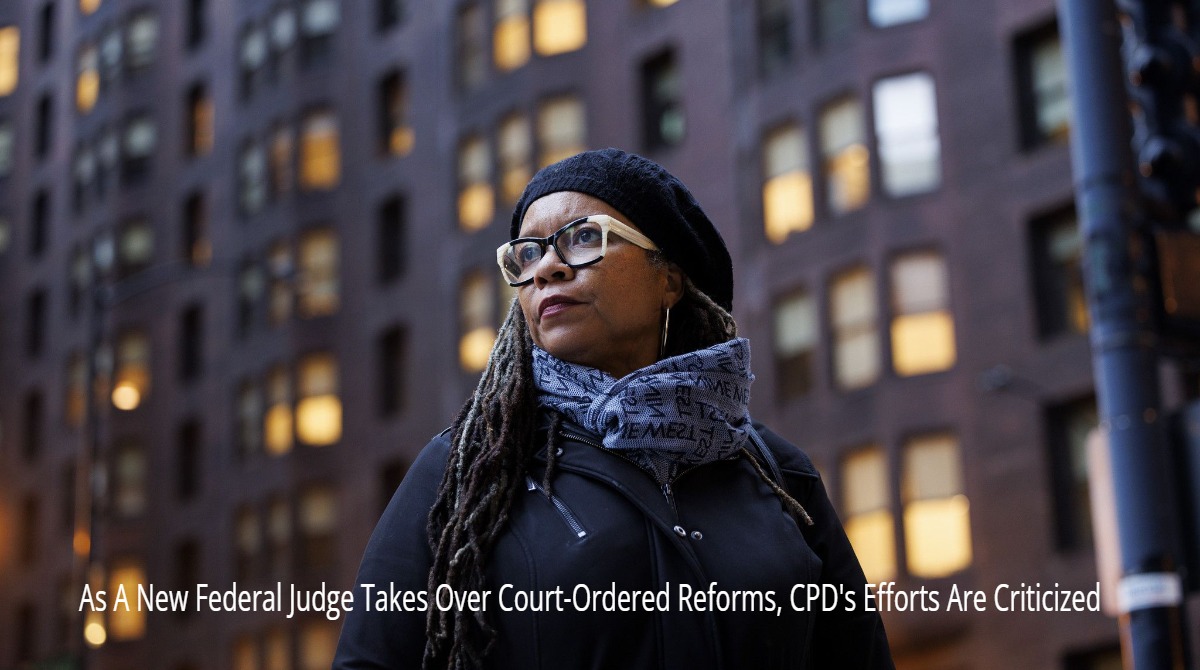When he started a federal consent decree in 2019 to force the Chicago Police Department. To implement significant changes following the death of 17-year-old Laquan McDonald at the hands of a patrol officer. Judge Robert Dow gave a modest order.
Let’s get started, he wrote.

Tuesday marked the beginning of a new chapter as Dow handed the gavel over to Judge Rebecca Pallmeyer. After choosing to serve as Chief Justice John Roberts’ chief of staff. The consent decree was “in my 15 years on the bench. This case has been the most difficult, frustrating, time-consuming, and, in many ways, rewarding case.” Dow said during a court hearing.
Although the police department has achieved some level of compliance with nearly 73% of the decree’s provisions. Ongoing worries about Police bias, constitutional violations, and reports of violent encounters. That dominated the lengthy hearing at the Dirksen Federal Courthouse.
“Racist and violent policing, unfortunately, is still the standard that city residents experience daily. According to Attorney Alexandra Block from the ACLU of Illinois.
A community-based coalition that includes her organization waived. It is right to file a civil rights lawsuit as part of the consent decree. After Lisa Madigan, a former attorney general of Illinois filed a lawsuit against the city regarding the shooting death of McDonald. Who killed by former officer Jason Van Dyke, and the order is made.

According to Amanda Anholt, senior attorney for the disability rights group Equip for Equality. The consent decree expanded coalition counsel. The police department’s crisis intervention program includes people with disabilities and people with mental illness issues.
Nevertheless, less than a third of the sections about the invention program are met by the police department. Which is the lowest level of compliance, according to Anholt.
She continued, “The effects are devastating. All too often, mentally ill people whose families call for help get hurt, shot, or jailed,” says a new program that responds to a tiny percentage of calls.
Attorney General’s Office deputy bureau chief Mary Grieb expressed dissatisfaction over the understaffing of several crucial police departments’ units and urged the city to finalize six “long overdue” policies, such as those addressing sexual misconduct and requiring officers to wear body-worn cameras following the decree and state law.
First, the consent decree develops policy, then trains officers and monitors field procedures.
“Getting here has been. It was much harder than it needed to be, “Grieb said. “Our group, the observer, and the community members that CPD must consult interact have consistently proposed common-sense policy changes, but the city and CPD have resisted them.”

Firsthand accounts of police using excessive force and illegal raids fueled the criticism after city officials praised the department’s progress. They provided information on initiatives that keep people caught with drugs out of the criminal justice system by integrating mental health professionals into the emergency response system.
Jennifer Bagby created or revised 80 policies since the city’s public safety reform began. Bagby predicted that the police department would comply with 78% of the court’s requirements during the next reporting period, which ended in June.
In addition to warning that “fewer staff members have made it more difficult for the city. The CPD to interact with the Chicago communities, show adherence to the consent decree, and promote trust and officer wellness.” The monitor, Maggie Hickey, stated that the police department needs to consider public input when drafting policies.

Hickey’s remarks come after controversial Police Supt. David Brown dismissed the department’s reform chief after he raised concerns about significant budget cuts to his office. It is evident that change is challenging, she said. “But despite that, we continue. The Chicago communities deserve and expect it.

